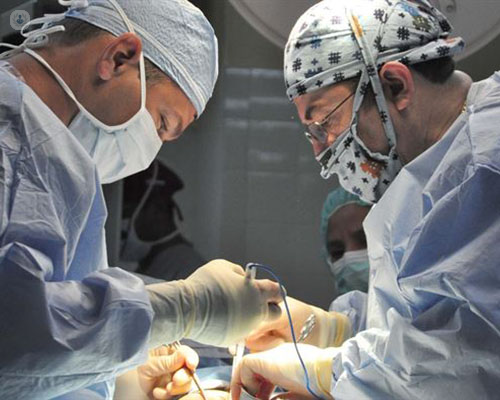When do I need to have my gallstones removed?
Written by:Dr Matthew Foxton, renowned consultant hepatologist and gastroenterologist, provides an expert insight into gallstones. The London-based specialist explains when patients may need to have their gallstones removed and what surgery for gallstones (called gallbladder surgery) involves, among other important points.
How common are gallstones, and what problems do they cause?
Gallstones, unfortunately, have become more commonly found as people have scans more frequently than they used to in the past. In my opinion, you only need to have gallstones removed if they are causing trouble.
This trouble may come in the form of:
- Pain or infection that causes symptoms, such as a fever, shakes or sweats.
- The gallstones falling out of the gallbladder and into the liver ducts, in which case you can become jaundiced, where your eyes and your skin turn yellow.
- You developing a condition called pancreatitis.
When is it necessary to have gallstones removed?
The conditions previously mentioned are absolute indications to have your gallstones removed. If you only have a little bit of pain or if you've just been found to have gallstones, then the best thing is to talk to your GP or get referred to a surgeon and talk to them on an individual basis about whether you really need to have your gallstones removed, and what it all involves.
How is gallbladder surgery performed?
Gallbladder surgery to remove gallstones uses general anaesthetic, where you fully go to sleep, and keyhole (or laparoscopic) surgery. Sometimes, if you're healthy and if the operation is performed early in the day, gallbladder surgery can often be performed as day-case surgery where you undergo surgery and then go home the later on in the evening, all on the same day.
During gallbladder surgery, four cuts are made: one at the belly button, and three near the ribcage. The one at the belly button is usually the longest one, but it measures usually no more than about half an inch. The three little cuts at the ribcage are similar to small stab wounds. We then use these cuts to introduce a camera inside the abdomen. Using long surgical instruments, we remove your gallbladder and free it off the liver, putting little clips on all the attachments. The gallbladder is put inside a bag.
The surgical cuts that you see are usually aesthetically-pleasing, and if all is well, you can then go home on the same day, or more commonly, the day after.
What is the recovery period after gallstone surgery?
Discharge from the hospital is usually on the same day of surgery or the next day. If it has been a difficult operation or if there have been any problems during surgery, then your hospital stay may be an extra few days.
I advise most patients to be off work for two weeks, during which you will be able to walk around normally at home and slowly get back to your normal strength.
If you do manual work like heavy lifting or work that involves a lot of moving about, then I sometimes advise to be off work for up to four weeks. This is because your body will be spending all of its energy recovering, meaning that you will get tired quite quickly during the day if you're quite physical. If there have been no complications during surgery, most patients will regain their full strength four weeks after gallbladder surgery.
Are there any risks associated with gallbladder surgery?
Most patients don't feel any different after the operation apart from the fact that they lose the pain that was associated with the gallstones. Occasionally, patients may complain of diarrhoea, which can be due to the bowel acids coming into the intestines a bit quicker. If you do get diarrhoea with loose stools, this will usually resolve itself within four to six weeks' time.
In terms of complications, there are minor risks which are more common for every operation, which involve risks of wound infection, and bleeding or bruising around the wound. These complications, however, are quite easy to treat; a wound infection is usually treated with antibiotics, and bruising will usually go away within two weeks.
A more serious risk to gallbladder surgery is something like bowel leak, where there is a leakage from where we've tied off the structures connecting the gallbladder to the liver or where the raw surface that's left from the gallbladder being removed can leak a bit of bile. This is very rare, but if it does occur, then it can be treated quite easily. Nevertheless, treatment may sometimes involve another operation by keyhole surgery to correct the complication, where we wash out the bile and then put an extra stitch in. This generally solves the problem.
Dr Matthew Foxton is a highly skilled consultant hepatologist and gastroenterologist with over 25 years' experience.
If you require gallbladder surgery and you would like to discuss your options with an expert, do not hesitate to book an appointment with Dr Foxton via his Top Doctors profile today.



